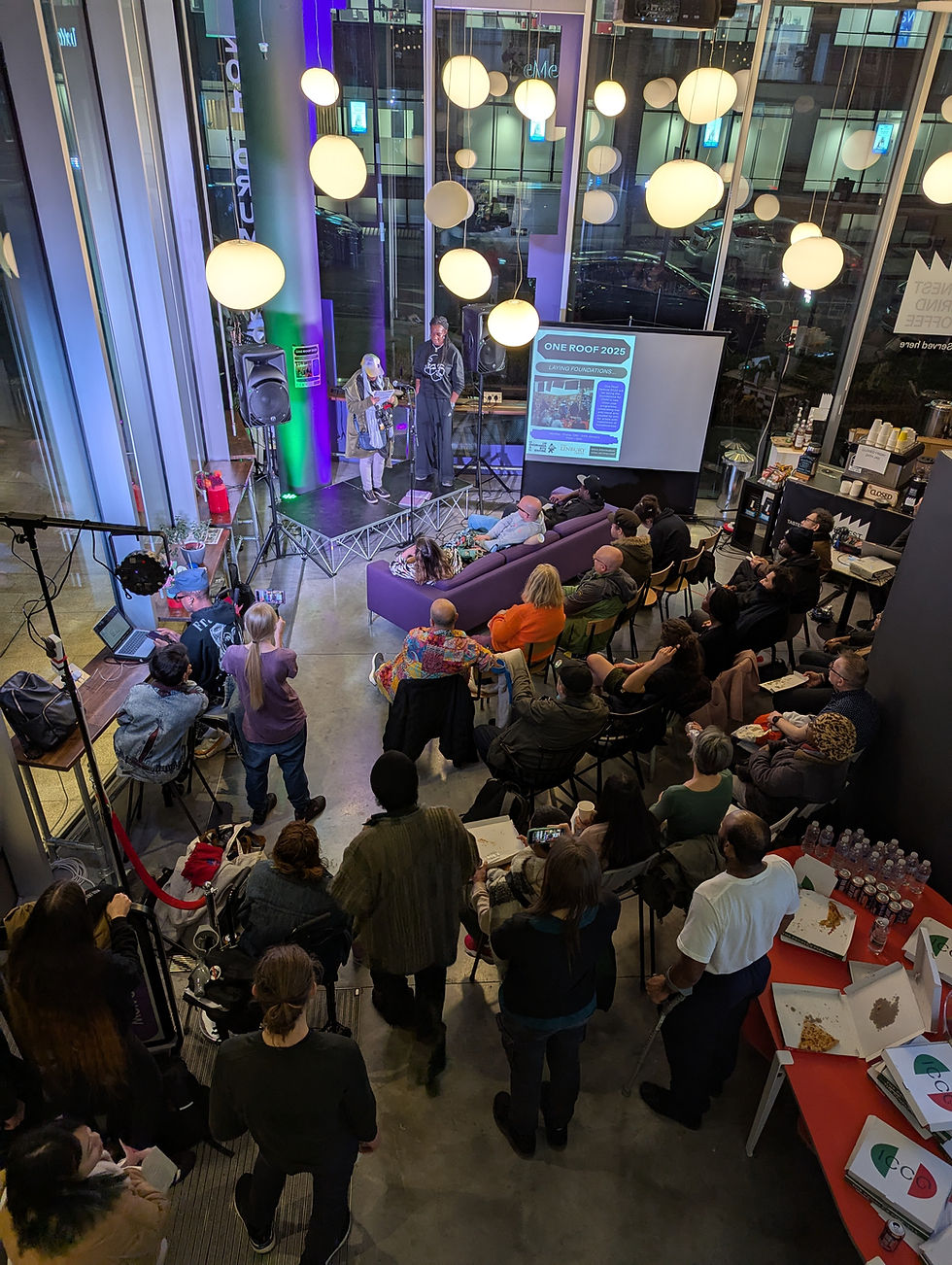Wrapping up the financial year with a short film series and a theory of change
- nellhardyactor
- Apr 1
- 4 min read
We can't believe how quickly the end of our first full year as a charity has come about! It's been full of surprises, positive challenges, and a LOT of learning - so it feels appropriate to be winding it up by finally sharing two things we've been working on for some time. The first is a series of short films we made all the way back in May, but have been holding onto while the research project that commissioned it prepared to start sharing all its findings. The second is our theory of change, which we have been building over the past several months with vital contribution from our core group attendees.
We love both of them, and are really excited to share them with you.
Something We Can All Agree On

"Forgiveness is a strange thing, isn't it? Forgiveness is a divine thing, and I'm not divine."
Some things, it seems, are just meant to be. At the same time as we were developing I, Lord - our show exploring spiritual abuse as experienced and perpetrated by people of many and no faiths - the Abuse in Religious Contexts project was starting to get into full swing. We didn't know about each other at first, but we quickly found out.
As a survivor of an experience that never seems to get spoken about, even though it's everywhere, finding others who have been through it too is such a profound experience. Finding that a well-funded national research project is underway led by professionals in law, safeguarding, advocacy and support for victim-survivors, and researchers with and without lived experience from a range of faith cultures, is another rung on the ladder.
Our shared interest and motivation in bringing to light the cultural, systemic and interpersonal features underpinning spiritual abuse across faith contexts (and outside of faith contexts), was not all we had in common. Like us, the researchers were keen to put victims and survivors in the driving seat and inform every stage of their process. And like us, they recognised the value of using the arts to make that accessible and trauma-conscious.
One of their research teams used a method called photo elicitation to interview survivors about their experiences of abuse. In this method, rather than simply being asked to answer a series of questions, interviewees are given the questions in advance and invited to share images that they associate with the themes in those questions. These can be photographs, collages, drawings, artworks, with literal or metaphorical relevance to the questions. The researchers then ask the survivors what those images mean to them. It is a way of avoiding the retraumatisation risk of asking survivors to go over the details of their abuse, and the frustration of trying to put together a linear narrative about it - as trauma can affect survivors' memories to the point where this can be almost impossible.
In our opinion, it also filters out the stuff that the researchers don't really need to know, and gives survivors permission to focus on what is really important to them. What their lives are like now. What they want them to be in the future. What they want for others like them, and for others at risk of experiencing what they experienced. People often reflect on how RAT shows pay very little attention to the details of survivors' original traumas, and far more on how survivors navigate the world around them. So this collaboration was a natural meeting of minds.Each of these five films responds to a different question put to victims and survivors by researchers. The text is taken directly from the answers they received. As some of the interviews were through this lens of photo elicitation, the product is more like a series of poems than naturalistic scenes - which we feel perfectly captures the insidious but often intangible nature of spiritual abuse.
Launching RAT's Theory of Change

No better way to celebrate the successes of RAT's core group meetings than to finish the financial year with this huge undertaking, which is really helping us all grow in understanding of each other and build a shared, detailed vision of the future of the organisation. As one core group member said on seeing it all come together,
"I feel especially held and heartened because of the centring of intersectionality, as well as education and training. I see there is a overarching opportunity to focus on enabling and sharing post traumatic growth, and to explore the lineages of the disciplines that are coming together here."
To see this alongside the vision, mission and values statements that we also developed with the core group in advance of this, check out the What is Response Ability? page on the website.
We're rearing to go into our 2nd charitable year, and to live these values and follow these ambitions to the full, with the mutual support of the survivor community all around us and with us.




Comments